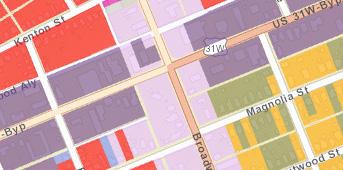First Amendment: “Congress shall make no law respecting
SECTION 3: THE LAW OF PLANNING PLANNING POWER Power in planning is found in the police power (the authority of the state and local governments to enact regulations), federal laws, eminent domain, the enabling authority, and the power to raise revenues.
FEDERAL LEVEL Federal Enabling Legislation (police power) SZEA (1926): Standard State Zoning Enabling Act that granted power to the legislative body to divide a city into districts, establish a zoning commission, and adopt procedures for establishing and amending zoning regulations. SCPEA (1928): Standard City Planning Enabling Act distinguished the making of the comprehensive plan and the organization of powers of the city planning commission, the control of subdivisions, the control of buildings in mapped streets, and regional plans. Village of Euclid v. Amber Realty co. (272 U.S. 365 [1926]) Upholds zoning as constitutional use of police power. Nectow v. City of Cambridge (277 U.S. 183 [1928]) - Zoning is invalid if not related to public, health, safety, and welfare.
an establishment of religion, or prohibiting the free exercise thereof; or abridge the freedom of speech.” RLUIPA (2000): The Religious Land Use and Institutionalized Persons Act protects individuals, houses of worship, and other religious institutions from discrimination in zoning and landmarking laws.
Fifth Amendment (1): “no person shall be...deprived of life, liberty, or property, without due process of law.” Procedural Due Process: 1. The right of individuals to be adequately notified of proceedings that may have a significant impact on them (e.g., a rezoning of property next door); 2. An opportunity to be heard before being deprived of a right (e.g., a chance to object to a rezoning that reduces the density on an owner’s land); 3. Clear regulatory standards so that a person is not required to guess what is being required of them (e.g. by giving some explanation of a standard beyond just “new development must be compatible with surrounding property”); and 4. An unbiased and objective decision maker.
City of Los Angeles v. Gage (274 P.2d 34 [Cal. Ct. App. 1954]) The police power includes the regulation of the use of property to the end that the public health, morals, safety, and general welfare may not be impaired or endangered. 14







